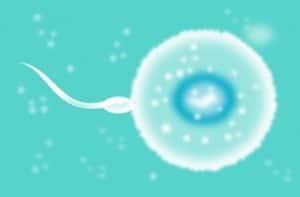
In cases in which the cause for infertility is known, doctors use the cause to come up with a treatment plan. If, for example, the fertility problem is due to sperm mobility problems, doctors may be able to successfully treat by fusing sperm and egg outside of the womb.
“The majority of couples experiencing problems with fertility are able to receive and explanation for their infertility,” Professor Sheena Lewis from the School of Medicine, Dentistry and Biomedical Sciences at Queens told Medical News Today. “These causes range from low sperm count, poor sperm motility in the man to blocked fallopian tubes or endometriosis in the women. Once the causes for infertility have been established, the appropriate course of assisted conception treatment can be taken.”
Unfortunately, couples with idiopathic infertility, doctors cannot distinguish which treatment plan would be most successful. Dr. Lewis has found new information that will hopefully give new hope to couples suffering from idiopathic infertility.
“For almost one third of couples, until now, there has been no obvious cause for infertility and these couples are given the diagnosis of ‘unexplained fertility.’ These couples often invest a lot of time and money in fertility treatments like intrauterine insemination (IUI) unlikely to be successful,” said Dr. Lewis. “In our study, we have now had a breakthrough which explains the cause of infertility for many of those couples. Now that we have found the cause of infertility for many of those couples suitable treatments can be tailored for them which will direct them straight to the best treatment and increase their chances of having a baby.”
Dr. Lewis and his team found that idiopathic infertility in as much as 80% of suffering couples can be linked to damage in the male’s sperm. Researchers say that a small amount of damage (less than 15%) is normal, but damage of more than 25% of the sperm can lower a couple’s chances of getting pregnant, even if they are receiving fertility treatment.
“We are Queen’s have developed the SpermComet, which is a unique test for male infertility that measures damaged DNA in individual sperm – providing all couples with specific information about the causes and extent of their infertility. This test can predict the success of infertility treatments and fast-track couples to the treatment most likely to succeed, leading to reduced waiting times and improved chances of success. With one million couples worldwide requiring fertility treatment, these new research findings will give many fresh hope of having a family.”
Related Articles:
- Study: Fertility of a Woman Linked to Her Mother’s Age at Menopause
- Couples Who Wait to Start Families Risk Infertility, Experts Say
- Study: Moderate Exercise Increases Sperm Quality






